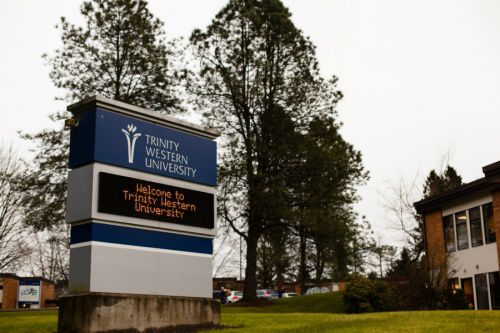A British Columbia Supreme Court judge has reversed a decision by the province’s law society that would have banned graduates of a Christian law school from practicing law in the province.
The Law Society of British Columbia (LSBC) originally agreed to recognize graduates of the proposed law school at Trinity Western University (TWU), the largest Christian university in Canada, in April 2014.
They reversed their decision in October 2014 with a vote of the members of LSBC, citing as the reason a covenant that all TWU students sign promising they will not have sex outside of a marriage between a man and a woman, as well as uphold other biblical ideals.
Of the approximately 13,000 members of LSBC, 74 percent voted to deny accreditation to TWU graduates.
In a sharply critical reversal decision, Chief Justice Christopher Hinkson rebuked the Law Society of British Columbia for infringing on the school’s religious liberty and for overstepping their bounds by dictating the decision to a vote of its members without properly considering constitutional rights.
"There is no basis upon which a conclusion could be drawn or any evidence from the Special General Meeting or the October Referendum proceedings that the LSBC's membership considered, let alone balanced, the petitioners' Charter rights against the competing rights of the LGBTQ community," he said, according to The Vancouver Sun.
British Columbia Law Society president Ken Walker said the judge’s decision is important and that the society will be consulting their legal counsel regarding next steps.
In a statement on the school’s website, Earl Phillips, the executive director of TWU’s proposed School of Law, said the school is “very pleased” about the decision.
“As the Chief Justice has affirmed, the decision to approve a law school graduate must be based not on personal opinions and feelings, but on the law and evidence. The evidence shows that TWU teaches its students to work and live with the highest levels of skill and integrity,” he said.
Guy Saffold, a senior advisor to the president of TWU, said on the school’s website that opposition to the “Community Covenant” signed by students stems from misunderstanding.
“The covenant isn’t about pushing anyone away, but about building a community where we’re free to honour our consciences,” he said. “The same covenant calls for all members of the TWU community to respect the dignity of others regardless of their background. Loving one another without exception is one of the most important principles of Christian faith.”
Saffold added that TWU does not ask students about their sexual orientation during the admissions process, and that LGBTQ students were welcome to attend the school.
The university has experienced similar backlashes in other Canadian provinces.
The Nova Scotia Barristers' Society and the Law Society of Upper Canada each refused to recognize TWU graduates.
Alberta, Saskatchewan, Prince Edward Island, New Brunswick, and the Yukon will recognize TWU’s law graduates. A decision by the Nova Scotia court requiring approval of TWU law graduates has been appealed by the Nova Scotia Barrister’s Society, and an Ontario court decision against TWU has also been appealed.
Saffold told The Vancouver Sun that while he is celebrating the decision in British Columbia, he knows that the process to get the TWU’s law school off the ground is far from over.
"At least if it is in your favour you are happy for the day, but we know there is more process to come," he said. "It's a good day, but there's always tomorrow."

